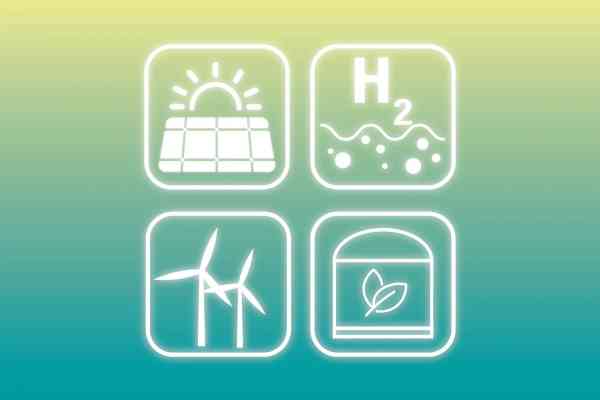October 15th, 2025 | 07:10 CEST
Hydrogen boom ahead: BMW, Toyota, Pure Hydrogen
Has the hydrogen hype cooled off? Not at all! Large companies are still investing heavily in this energy carrier. Industrial companies, such as those in the chemical sector, as well as automakers like BMW and Toyota, are all offering innovations related to hydrogen. But hydrogen is not just a topic for large corporations. Smaller mid-sized companies also need solutions for renewable energy for their factories or vehicle fleets. This is where the Australian company Pure Hydrogen comes into play – the hydrogen specialists' focus is on holistic solutions.
time to read: 3 minutes
|
Author:
Nico Popp
ISIN:
BAY.MOTOREN WERKE AG ST | DE0005190003 , TOYOTA MOTOR CORP. | JP3633400001 , PURE HYDROGEN CORPORATION LIMITED | AU0000138190
Table of contents:

"[...] The VERRA certification adds credibility to dynaCERT's emission reduction technologies by demonstrating compliance with internationally recognized standards for carbon emissions reductions and sustainable development. [...]" Jim Payne, CEO, dynaCERT Inc.
Author
Nico Popp
At home in Southern Germany, the passionate stock exchange expert has been accompanying the capital markets for about twenty years. With a soft spot for smaller companies, he is constantly on the lookout for exciting investment stories.
Tag cloud
Shares cloud
Toyota remains open to technology – BMW a little less so
Hydrogen vehicles do exist. Toyota, in particular, is once again proving itself to be a technology-open pioneer in this field. After causing a sensation with the first hybrid engine in 1997, the Japanese company has also been offering the Mirai, a fuel cell vehicle that runs on hydrogen, since 2014. Nevertheless, Toyota has sold only 22,000 of these vehicles in more than ten years. Despite this, the Company continues to emphasize its commitment to the technology. This puts Toyota ahead of BMW. Although the Munich-based company has also developed a hydrogen vehicle, the iX5 Hydrogen, the prototype is not yet available for purchase. According to media reports, series production plans could be on the agenda towards the end of the decade.
While many car manufacturers, such as Volkswagen, are focusing exclusively on battery-powered vehicles, BMW and Toyota remain open to other technologies. The Japanese are even researching a hydrogen combustion engine and want to be prepared should an additional market emerge alongside classic electric vehicles. This is another reason why Toyota is investing in hydrogen networks and filling stations. Toyota says that higher sales figures for hydrogen vehicles will only be possible once this infrastructure is in place. Hydrogen plays a much greater role in commercial vehicles anyway. Toyota's subsidiary Hino is developing trucks and buses that run on hydrogen - these benefit from subsidies in many regions of the world, especially in Asia.
Pure Hydrogen: Full-service provider for hydrogen
Unlike car manufacturers Toyota and BMW, Pure Hydrogen operates in the B2B sector, focusing on providing business customers with comprehensive hydrogen solutions. In addition to electrolysers for the production of green hydrogen, Pure Hydrogen also offers solutions for storing the energy carrier. The Company also focuses on fuel cell-powered commercial vehicles. Specifically, Pure Hydrogen offers heavy-duty tractor units, garbage trucks, buses, forklifts, and even concrete mixer trucks. In recent quarters, the Company has successfully sold several of these vehicles. In addition to its home market, the Company also has a strong presence in Africa, North America, and Latin America. In Mexico and Argentina, they have landed lucrative orders in recent months, covering both the construction of electrolysers and the supply of hydrogen-powered commercial vehicles.
Investors considering Pure Hydrogen shares should bear in mind that the Company also holds interests in a gas field in Queensland and a gas project in Botswana. In the medium term, the Company plans to spin off these interests to position Pure Hydrogen as a pure-play cleantech company. This strategy makes sense: many investors are looking for companies like this, and the market forecasts are also favorable. McKinsey, for example, estimates that by 2035, there could be up to 850,000 hydrogen-powered trucks on the road in Europe alone. Although Pure Hydrogen is a young growth company, analysts have given the Australians a good rating. MST Financial, for example, sees Pure Hydrogen at AUD 0.27 per share – more than twice the current price.
McKinsey: Hydrogen cheaper than diesel from 2030
Many analysts see hydrogen as a key component of the energy transition, especially for sectors that are difficult to electrify with batteries. In the transport sector, this applies in particular to heavy commercial vehicles, long-distance transport, ships, and - according to Toyota and BMW - certain passenger vehicles. Research by McKinsey suggests that hydrogen could be at least as cheap as diesel from 2030 onwards. Attractive costs are considered a prerequisite for investment in hydrogen infrastructure. However, many potential buyers lack hydrogen infrastructure. This is where Pure Hydrogen comes in. A combination of a PV system, an electrolyser, and a fleet of fuel cell vehicles can already make many companies fit for the future today. In Germany, emissions trading will be extended to the transport sector in the next few years. Diesel will then become more expensive, and more companies could look to the near future and take an interest in hydrogen technology.
Imagination surrounding Pure Hydrogen shares
While Toyota and BMW shares are suffering from the crisis in the automotive industry and are anything but promising for the future, Pure Hydrogen has repeatedly provided rays of hope in recent months. Last month alone, the share price rose by more than 11%. Investors who want to bet on hydrogen and are interested in an up-and-coming company that is winning over customers in many regions of the world should take a closer look at the stock. A possible spin-off of the gas division could also be lucrative for investors. Analysts expect a spin-off by the end of the first quarter of 2026.
(image: z-pure-hydrogen-chart.png
Conflict of interest
Pursuant to §85 of the German Securities Trading Act (WpHG), we point out that Apaton Finance GmbH as well as partners, authors or employees of Apaton Finance GmbH (hereinafter referred to as "Relevant Persons") may hold shares or other financial instruments of the aforementioned companies in the future or may bet on rising or falling prices and thus a conflict of interest may arise in the future. The Relevant Persons reserve the right to buy or sell shares or other financial instruments of the Company at any time (hereinafter each a "Transaction"). Transactions may, under certain circumstances, influence the respective price of the shares or other financial instruments of the Company.
In addition, Apaton Finance GmbH is active in the context of the preparation and publication of the reporting in paid contractual relationships.
For this reason, there is a concrete conflict of interest.
The above information on existing conflicts of interest applies to all types and forms of publication used by Apaton Finance GmbH for publications on companies.
Risk notice
Apaton Finance GmbH offers editors, agencies and companies the opportunity to publish commentaries, interviews, summaries, news and the like on news.financial. These contents are exclusively for the information of the readers and do not represent any call to action or recommendations, neither explicitly nor implicitly they are to be understood as an assurance of possible price developments. The contents do not replace individual expert investment advice and do not constitute an offer to sell the discussed share(s) or other financial instruments, nor an invitation to buy or sell such.
The content is expressly not a financial analysis, but a journalistic or advertising text. Readers or users who make investment decisions or carry out transactions on the basis of the information provided here do so entirely at their own risk. No contractual relationship is established between Apaton Finance GmbH and its readers or the users of its offers, as our information only refers to the company and not to the investment decision of the reader or user.
The acquisition of financial instruments involves high risks, which can lead to the total loss of the invested capital. The information published by Apaton Finance GmbH and its authors is based on careful research. Nevertheless, no liability is assumed for financial losses or a content-related guarantee for the topicality, correctness, appropriateness and completeness of the content provided here. Please also note our Terms of use.




